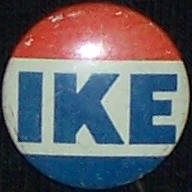
Fast Company sends word that Facebook users can now tab company pages in their photos in addition to users, and how it’s the next evolution of Like As they put it:
Social media experts have begun to look askance at the Like system. It’s so easy for someone to “Like” something. What does it really signify? If you “Like” a kind of soda, for example, does that actually mean that you’re buying the item? Or just that you like the idea of the item? How do you really know how engaged with the product any particular Liker actually is?
Now think about tags in photos. If you’ve tagged a photo in which you’re wearing that cute pair of jeans, you don’t simply like the idea of the designer. You’ve actually gone out and put down some of your hard-earned cash for their duds. Photo tags, then, become a much stronger signal of engagement.
I don’t disagree that it’s a stronger sign of engagement; after all, it takes more work than just clicking a button, but I don’t think a tag in a photo means you’re necessarily a customer. It could just be a sign that you’re more obsessive-compulsve than the average Facebook user. It could also be a sign that you’re pissed at the company, which means Facebook just opened the door to Twitter-style brand management issues on a platform that possibly has more influence (fun fact: 8% of Americans who use the internet are on Twitter, while more than 41% of Americans have Facebook accounts, apparently – different research methodologies there, but the gap is still significant.)
Anyway, the article goes on to suggest some interesting advertising opportunities, which Facebook hasn’t enabled yet, but could be compelling – if I could put an ad in front of people who took the time to tag my company in their photos, that might be a win, whether the tag was positive (and my brand gets built further) or negative (can’t hurt, really.)
We’re talking much smaller numbers than standard media buys though, given the orders-of-magnitude smaller (yet arguably much more targeted) audience, so unless it can be folded into an existing social media campaign where the daily work is already being done, this might not make sense for many organizations. I’m a little skeptical of mixing ad buys with social media management in general though; if your team is big enough to have separate content and analytics people, then maybe there’s a fit, but I think the person who does your comment replies isn’t necessarily the person who should be buying your ads – consult him or her regarding them, sure, but it’s a left brain/right brain kind of thing.
Leave a Reply